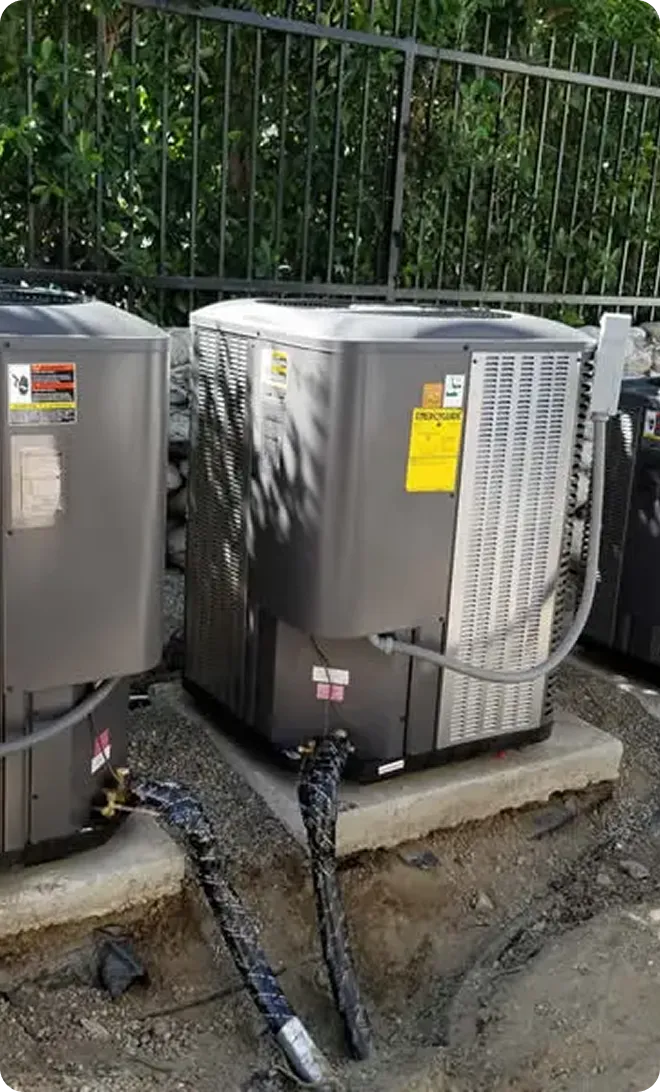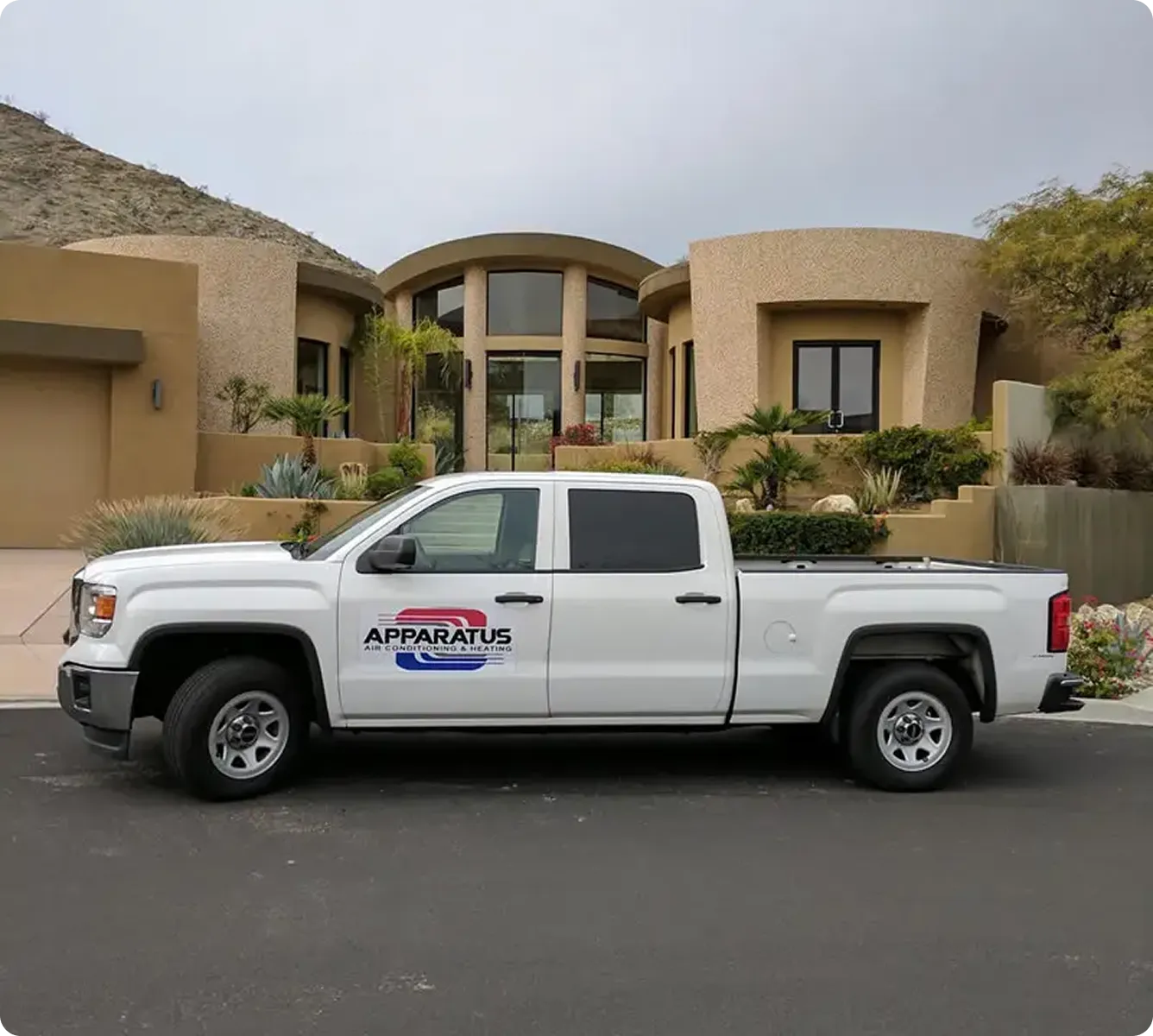
Water Heater Replacement in Bermuda Dunes, CA
Water Heater Replacement in Bermuda Dunes, CA
Replacing a water heater is a major home decision. In Bermuda Dunes and the Coachella Valley, high summer temperatures, hard desert water, and year-round demand for reliable hot water make choosing the right replacement especially important.
-min.webp)
When to Replace vs. Repair
Deciding whether to repair or replace depends on age, performance, and safety:
- Age of the unit: Traditional tanks typically last 8 to 12 years; tankless units often last longer but require different maintenance. As units near end of life, replacement becomes more cost-effective.
- Repeated repairs: Multiple service calls in a short period usually indicate impending failure and justify replacement.
- Rust, corrosion, leaks: Visible corrosion or a leaking tank requires replacement to avoid water damage.
- Efficiency and energy costs: A steep rise in energy bills or inability to meet household hot water needs can justify upgrading to a more efficient model.
- Safety concerns: Gas leaks, pilot light instability, or failed pressure/temperature relief valves are reasons to replace rather than patch.
In Bermuda Dunes, mineral-laden groundwater accelerates sediment buildup and corrosion, which frequently pushes tank units toward earlier replacement. If your home has hard water, factor that into the repair vs. replace decision.
Choosing the Right Replacement Unit
Selecting the correct water heater depends on household needs, space, and fuel availability.
- Tank vs. Tankless
- Tank water heaters store hot water and deliver consistent supply for typical household use. They are simpler to install and often cost less up front.
- Tankless (on-demand) units heat water as needed, offering higher energy efficiency and virtually unlimited hot water for smaller households or continuous-use scenarios. They require proper sizing and can need upgrades to gas lines or electrical service.
- Heat pump (hybrid) water heaters move heat instead of creating it and can be highly efficient in mild climates; however, they need space and appropriate ambient temperatures.
- Capacity and sizing
- For tank systems, choose capacity based on household size and peak-hour demand. For tankless, size to the maximum combined flow rate (gallons per minute) required during peak use and account for the temperature rise needed given local groundwater temperatures in the desert.
- Bermuda Dunes homes often need to account for higher incoming water temperatures in summer but larger temperature drops in winter nights—discuss local groundwater temps with your installer for accurate sizing.
- Fuel type
- Options include natural gas, propane, electric resistance, heat pump, and solar-assisted systems. Availability of natural gas or propane, and existing gas/electrical service, affect the most practical choice.
- Consider energy costs and infrastructure: some homeowners switch to electric heat pump systems for higher efficiency and eligibility for certain incentives.
- Energy-efficiency ratings
- Look for current efficiency metrics (Uniform Energy Factor / UEF), Energy Star designation when applicable, and estimated annual operating costs. Higher efficiency can reduce long-term bills, which is important given high seasonal usage in desert climates.
Removal and Disposal of Old Equipment
Professional removal is recommended to ensure safe handling and code-compliant disposal:
- Drain and depressurize the system, disconnect gas, water, and electrical connections safely.
- Remove old tank or unit and properly dispose of materials. Tanks and components may be recyclable, but sediment and chemicals are handled per local regulations.
- If the unit contained refrigerant (heat pump), certified recovery and disposal procedures are required.
- In Bermuda Dunes, municipal disposal rules and recycling options should be followed; installers typically manage permits and disposal to meet county requirements.
Professional Installation Steps
A quality installation includes several clear steps to ensure safety and performance:
- Pre-install inspection and final sizing: Verify venting, gas/electrical capacity, and placement.
- Obtain necessary permits (see next section).
- Disconnect and remove the old heater; prepare the site (pad, vent location, condensation management).
- Install new unit, including proper venting, gas or electrical hookups, seismic strapping if required, and drain lines.
- Pressure and leak testing, start-up, and function checks for thermostats and safety devices.
- Final inspection and documentation of work and warranties.
Professional installers in the desert factor in ventilation needs, sun exposure on exterior units, and sediment mitigation strategies like pre-filters or water softening.
Permitting and Code Compliance
Permits are typically required for water heater replacements and fuel-line or electrical upgrades. Expect the following:
- Plumbing and/or mechanical permits for replacement and venting changes.
- Gas permits for new or modified gas connections; electrical permits for new circuits or upgrades.
- Inspections by the local building department to confirm compliance with applicable codes and safety standards.
- Special requirements may include seismic straps, combustion air, venting clearances, and energy code compliance. In California, energy efficiency and appliance installation standards often apply.
Your installer should handle permit submission and coordinate inspections to ensure compliance with Riverside County / local Bermuda Dunes requirements.
Timelines and Cost Factors
Typical timelines vary by scope:
- Direct like-for-like replacement: usually completed in one day.
- Switching from tank to tankless, relocating unit, or making gas/electrical upgrades: could extend to several days.
- Permitting and inspection scheduling may add time before final sign-off.
Cost is influenced by:
- Unit type and efficiency level chosen
- Required upgrades to gas lines, venting, electrical service, or platform
- Complexity of removal and disposal
- Local permit and inspection fees
- Any required water treatment or sediment mitigation work
Budget for long-term operating cost differences when evaluating options.
Rebates, Financing, and Warranties
- Homeowners may qualify for manufacturer warranties that vary by model: tank units often carry warranties for the tank and components, while tankless units typically have longer warranties on heat exchangers. Labor warranties from installers commonly cover workmanship for a set period.
- Federal, state, and local utility incentives or rebates may be available for high-efficiency or heat-pump water heaters. California programs frequently offer incentives for electric heat pumps and high-efficiency equipment; local utility programs in the Coachella Valley may also provide rebates.
- Many contractors offer financing options to spread replacement costs; terms and availability vary.
Long-Term Benefits and Maintenance
Replacing an old water heater can deliver:
- More reliable hot water and improved household comfort during peak demand
- Lower operating costs with higher-efficiency models
- Reduced risk of leaks and water damage
- Potential eligibility for incentives and longer manufacturer protection
To prolong the life of any new unit, follow recommended maintenance: periodic flushing for tanks to remove sediment, descaling for tankless systems in hard water areas, inspecting anode rods on tanks, and regular professional tune-ups.
SummaryIn Bermuda Dunes, replacing your water heater is often the smartest choice when age, repeated repairs, leaks, or efficiency losses threaten reliability. Choose the right technology for your household demand, account for desert-specific factors like hard water and heat exposure, and rely on a professional installation that manages permits, safe disposal, and code compliance. Proper selection and installation will deliver dependable hot water, better efficiency, and peace of mind for years to come.

hear what our satisfied
clients have to say









.webp)